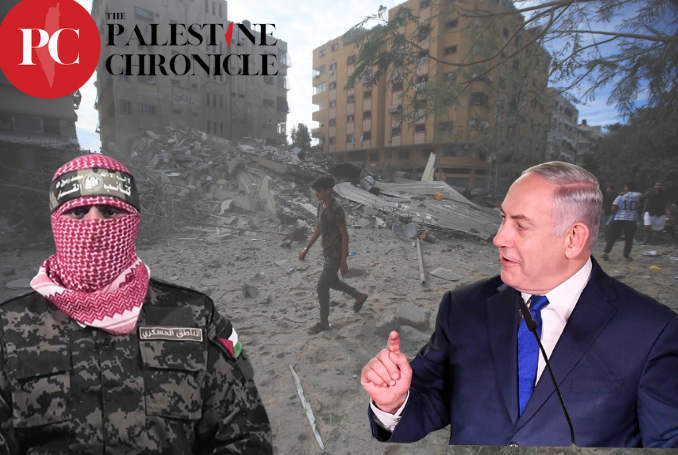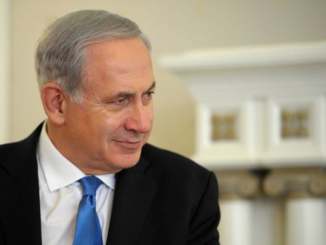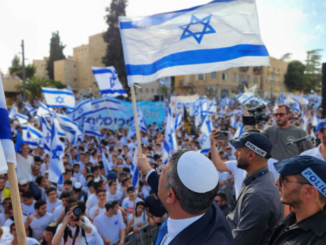
By Ramzy Baroud 
What if Hamas wins and Israel loses? And what if Israel wins and the Resistance loses? Before we answer these questions, we must define what is winning and losing.
Before we answer these questions, we must define what is winning and losing, in what many consider a genocidal war against a civilian population in Gaza.
Regardless of the intense Israeli propaganda and the unprecedented media campaign about what has taken place on October 7, the Palestinian Resistance in Gaza, Hamas in particular, has scored a major military victory against Israel.
Prior to that date, such a reference to a Palestinian ‘military victory’ would have been unthinkable, as guerilla warfare is governed by very strict rules.
One of these rules is that guerilla fighters can only engage in a war of maneuver as opposed to a war of position. In other words, they ‘hit and run’.
This time around, however, the Resistance in fact advanced, held military bases and settlements, and remained in position for hours, some say for days.
Never before in the history of the conflict has an event of this nature occurred, and never before were Palestinians ever in charge of their fate to this extent.
So, for the Resistance, a victory is Israel’s failure to achieve any of its military or strategic goals in Gaza, even if Israel has resorted to what some legal experts described as genocidal policies against Palestinian civilians in the Strip.
For Israel, the path towards victory is very complicated. If they succeed in invading Gaza, they will have to deal with the impossible task of governing the rebellious Strip. If they don’t invade, automatically, they lose.
But what if Hamas wins and Israel loses? And what if Israel wins and the Resistance loses?
A Hamas Victory
A victory for Hamas means the following:
Internationally:
Palestine would once more become an international priority and would impose itself on any global power, be it the US, China or Russia as an urgent geo-strategic issue that can no longer be ignored.
In other words, the days of leaving the fate of Palestine and her people to be an exclusively American and Israeli decision, are likely to be over.
‘Beyond Scope of Self-Defense’: China Slams Israel’s Actions in Gaza
Regionally:
A Hamas victory would be considered a major blow to any normalization effort with Israel.
If a South American country like Colombia is threatening to sever ties with Israel, it would be difficult for Saudi Arabia, an influential Muslim nation, to strike a normalization deal, and to celebrate it as a strategic victory.
Additionally, the marginalization of Palestine and the Palestinians, and the constant pressure on Palestinian political movements and communities throughout the region is likely to ease now that Palestinians have emerged as an important political, in fact, arguably, military force.
Saudi Arabia Issues Official Position on War in and around Gaza
At the Palestinian Front:
If the resistance prevails, it would be difficult for the Palestinian Authority in Ramallah to claim any kind of legitimacy, however nominal, among Palestinians. There is also a real possibility that the PA would be dismantled, whether under Palestinian pressure or due to the fact that it would no longer be taken seriously as a political force in the region.
Fearing that he might completely lose his relevance, PA President Mahmoud Abbas said on Sunday that Hamas does not represent the Palestinian people.
Indirectly, what Abbas was saying is that a victory for Hamas is the automatic defeat of the PA and the further marginalization of the PLO, a once-all encompassing Palestinian political body, which was sidelined by the PA, following the Oslo Accords in 1993.
The Resistance vs. the Palestinian Authority: Will Abbas Lead Palestinians to Civil War?
At the Israeli Front:
This is the most important of all the consequences of the war.
The idea of the triumphant and ‘invincible’ Israel has been crushed. This explains the fury of the Israeli response and the killing and wounding of thousands.
It is as if Israel is trying to compensate for that psychological and military defeat by psychologically defeating Palestinians and reviving the Israeli spirit.
This is unlikely to happen, since the tenacity of Palestinians, exhibited in many wars and military confrontations with Israel in the past, has proved that the Palestinian resolve cannot be weakened, however the Israeli military pressure.
The notion of ‘fortress Israel’ is gone, and possibly for good.
Equally important is that the rules of engagement between Israel and the Resistance will fundamentally be altered. That the routine bombardment of Gaza, the sniping of children protesting at the Gaza-Israel fence, and all the rest, would represent a major risk for the Israeli military and setters, especially those living close to the Gaza region.
It remains unclear, however, how the Hamas victory would alter Israel’s relationship with Palestinians in Jerusalem and the West Bank.
Quest for Religious War: How Israel is Unifying Arabs and Muslims around Palestine
True, the psychological component would still be relevant there; but if the Palestinian Authority somehow persists, it will not be easy for Palestinians to translate their strategic and military gains in Gaza to equal strategic and military gains in the West Bank and Jerusalem.
That said, the idea of armed resistance would return to the West Bank with full force.
Resistance groups, mostly active in the northern West Bank, are likely to recruit a large number of youth, all ready to take up arms with the hope of imitating the Gaza experience.
But What if Israel Wins?
If Israel wins, the Israeli occupation will not return to the old status quo. A much more violent version of it will emerge, since it will take Israelis years to repair its tattered image following the October 7 defeat.
If the current Israeli government, described as the ‘most extremist in the history of Israel’, a post-Israeli-victory government would be much more extreme.
This means rapid expansion of settlements, unhinged colonization of Palestinian lands, mass arrests, much more lethal violence, and possibly, annexation.
This would also mean that any discussion on a peace settlement, or even just a political settlement, will come to an end. Only Israel, then, would hold all the cards or determine all the outcomes.
Regionally, Israel would soon return to its normalization campaign, now that there will be no hindrances, namely the Palestinian Resistance, standing in the way.
An Israeli victory would also be considered a major blow to the Palestinian Resistance’s allies in the Middle East, namely Hezbollah in Lebanon, Iran and others.
Internationally, Israel will use this as an opportunity to utilize Western pro-Israel sympathy to crack down on pro-Palestinian organizations, individuals, academics, charities, and solidarity groups throughout Western countries.
‘Tomorrow Will Be Too Late’: Iranian FM Warns Israel of Regional ‘Earthquake’
Conclusion
Though Iran was not prepared nor is keen on a regional war, it might find itself having to fight one. Because if Gaza is defeated, what Iran refers to as the ‘Axis of Resistance’ in the Middle East would certainly suffer a major strategic defeat.
Washington understood this from the early hours of the war. This is why it sent two major aircraft carriers to the East Mediterranean, hoping to send a strong message to Iran and its allies that the US is ready to intervene.
If Israel continues to fight a zero-sum game with the Resistance, it would only be a matter of time before the whole region joins the war.
The outcome of a regional war will not only determine the winners and losers in Palestine and Israel, but rather the new dominant regional powers throughout the Middle East as a whole.

– Ramzy Baroud is a journalist and the Editor of The Palestine Chronicle. He is the author of six books. His latest book, co-edited with Ilan Pappé, is “Our Vision for Liberation: Engaged Palestinian Leaders and Intellectuals Speak out”. Dr. Baroud is a Non-resident Senior Research Fellow at the Center for Islam and Global Affairs (CIGA). His website is www.ramzybaroud.net







